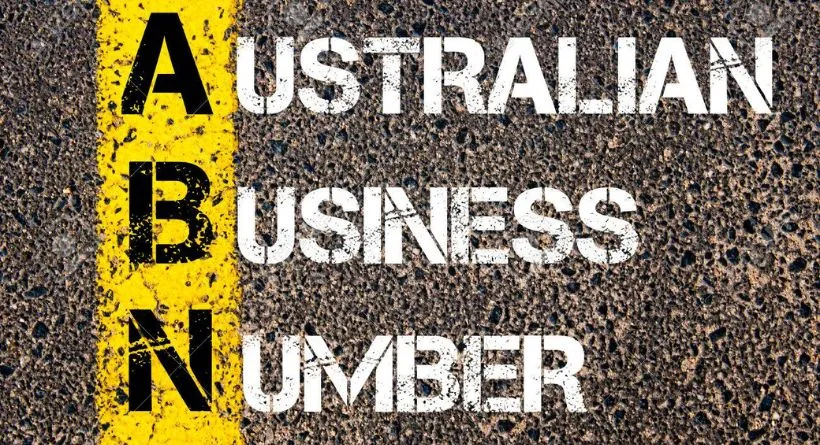Starting a business in Australia can be a challenging but rewarding experience. Aspiring entrepreneurs may encounter various problems along the way, such as obtaining the necessary permits and licenses, complying with tax and legal requirements, and finding the right market for their products or services.
However, with careful planning and the right resources, these challenges can be overcome. One solution is to seek guidance from government agencies and industry associations that offer support and information on how to start a business in Australia. Additionally, there are many online resources and tools available to help entrepreneurs create a solid business plan, conduct market research, and manage finances.
At our company, we promise to provide our readers with comprehensive and reliable information on how to start a business in Australia. We aim to offer practical solutions and valuable insights to help entrepreneurs navigate the complex landscape of starting a business. Whether you’re a first-time business owner or a seasoned entrepreneur, our content is tailored to meet your specific needs and challenges.
By leveraging our expertise and resources, we promise to equip our readers with the knowledge and skills they need to turn their business ideas into successful ventures in Australia.
How to Start a Business in Australia
1. Choose your business structure.
The business structure you select is crucial since it directly affects things like:
- Your degree of command
- How much tax you’ll have to pay
- Regulatory requirements
- Workplace health and safety regulations
- The extent of your personal culpability
- In Australia, you can base your firm on one of four structures:
Sale Trader: When you register a person (often oneself) as the business’s only owner, you do so as a sole trader. This implies that while you have the right to employ individuals to work for you, you are still in charge of all legal elements of operating the firm.
Company: This is a company that operates as a separate legal entity from its stockholders.
Partnership: A partnership is when many individuals or entities manage a business jointly without using the formal structure of a corporation.
Trust: A trust is a legal body that holds assets such as money, property, or other resources for the benefit of another person.
Before registering your firm, you must choose its structure because different structures require different procedures. Additionally, it’s important to keep in mind that if your company expands and changes over time, you may decide to change the way it is structured.
2. Pick a business type.
With a framework in place, you can more clearly determine the kind of company you’ll probably require. There are many different company kinds to pick from, and some of the more prevalent ones are as follows:
- A web-based business
- An enterprise
- Independent businessperson
You must choose the business kind that best fits your sector since each one has a unique set of legal duties and regulatory restrictions.
3. Apply for an Australian Business Number (ABN) and register your business name.
Without an ABN, it is illegal to launch a business in Australia. This 11-digit number serves as the company’s official government identification and is exclusive to your firm.
- After obtaining an ABN, you will be able to:
- Registering your company name
- Identify your company to other organizations so they may do things like place orders for goods and services or issue invoices.
- Taxes like the Goods and Services Tax (GST) should be claimed.
- Use credit to pay for items like energy grants.
Prior to create assets like your website URL, logo, or other designs, it is important to choose the name of your company. In the case that your company name changes, you’ll need to make any necessary modifications. If you do design a company logo, you should think about whether you need to patent it to prevent copyright infringement.
Although you have the option to register your ABN and business name separately, doing it here is more convenient.
4. Register your domain name.
Since you can only obtain a.com.au address if your business is registered in Australia, you can only finish this step after you’ve acquired your business name and ABN. The domain name you choose should have some connection to your company and be simple to discover and pronounce for potential clients.
Even if you have the ideal domain to match your brilliant business name, you need still make sure that no one else has previously claimed it. Fortunately, there are several websites out there that can assist you with that; to give you a head start, here is one of them.
Once you’ve found a domain name that isn’t taken, you can go to the .au Domain Administration Ltd (.auDA) website to find links to domain registrars and resellers. Here, you’ll get an idea of how much you’ll have to pay to secure your domain name.
5. Identify your funding source.
If you’re like most new businesses, cash flow will be your first priority. If you don’t have the cash to keep the lights on while you’re getting your firm off the ground, then the finest business plan in the world won’t help. Knowing what tools are available to make the early stages of growth simpler is crucial in this regard.
There are various choices that are particular to each state, even if there aren’t many government subsidies available to assist you launch your firm. For instance, you may apply for a cool $20,000 Small firm Development Fund if you’re opening a firm in Adelaide.
Other awards are determined by:
- Bringing your concept to market
- Sales and marketing
- Purchasing tools
- Bringing in and sending out
- Working with people
6. Choose your software stack.
There are several important considerations you must make as you begin to establish your organization. Making a wise pick for software that will ease your life as you scale is one of the most crucial decisions you can make.
There are a few tools that are worth considering for any business, even if your specific software selections will depend greatly on the sort of business you are starting (a SaaS firm would require slightly different tools than a coffee shop).
Almost every firm should use a CRM to manage crucial customer data in a single location, an accounting or bookkeeping program to keep funds in order, and an analytics tool to gauge business expansion.
7. Register for the correct taxes.
The phrase says, “The only certainties in life are death and taxes.” This is regrettably also true if you create a business in Australia; in order to prevent any potential legal repercussions, you must register for the appropriate taxes. The taxes you must file vary on the kind of business you decide to launch; some are required for all types while others are just for certain kinds.
Several instances include:
- Pay as You Go (PAYG) withholding tax is necessary if you need to deduct money for taxes, such as when paying wages or salaries, and is needed if your firm has a turnover of $75,000 AUD or more.
- If you’re fortunate enough to be able to provide your staff benefits like a company car, you’ll need to register for the Fringe Benefits Tax (FBT).
- To learn more about the various tax kinds, go here.
You’re virtually ready to depart if you take care of the aforementioned necessities. We do have one more piece of advice for you, though. Finding methods to save costs and creating a strong network of colleagues and business partners will make beginning a firm much simpler.
Establishing a business at one of Australia’s many coworking spaces is a terrific method to do both. The money you save on office expenses will allow you to network, which may lead to more advantages in the future.
We wish you the best of luck in everything that you do and wherever you choose to launch your business!










